
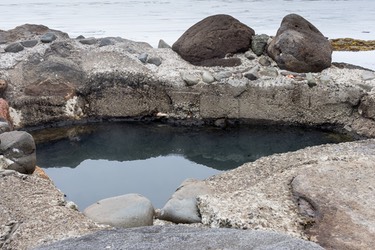
We drove north along the coast road to look for the Seseki Onsen, which is an outdoor bath on the beach. When we arrived, there was a young Japanese couple in the onsen: he was naked and she was clothed. The regulations for use of this onsen are that women have to wear a bathing suit but men do not! This onsen did not look at all inviting, and the smaller one even less so, and we could not understand the attraction.

According to a signboard, the Seseki Hot Spring was discoverd in 1899, and the hot spring originates beneath the rock reef. It is referred to by locals as a “secret” hot spring because it disappears under the water at high tide. But it looks like this pool has a manmade construction around it and is no longer secret.
The sea was very calm and appeared to be quite shallow with lots of buoys strung out along the coast for fishing.
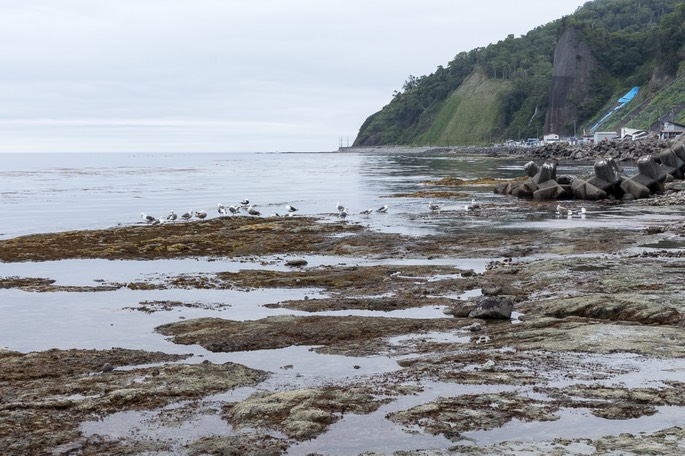
The water was very clear at the coast line and full of strange looking plants. At breakfast, we were given these small souvenir sachets containing dark strips of something. Lawrence tried eating them and declared them inedible. He thought they might be incence strips. However, when we eventually found the food shops in town, we discovered they were strips of kelp for which this area is famous!
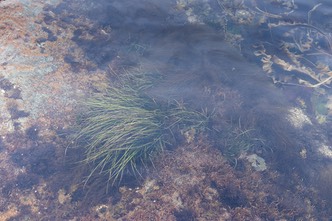

This stretch of road was quite bleak and the hillsides were strewn with snow breakers. Indeed, Rausu is famous for being at the southern end of the drift ice zone from the Artic ocean.
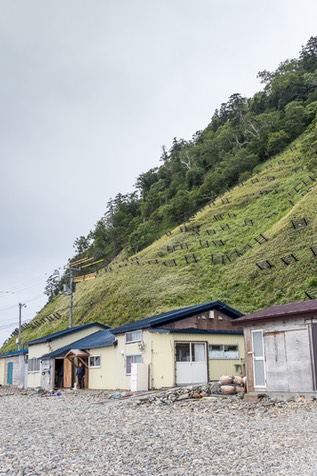
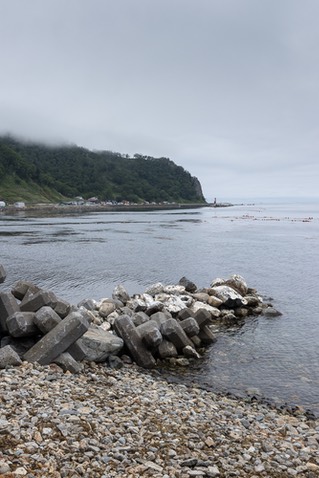
As we drove back towards Rausu we found another outdoor hot spring at Aidomari. Workmen were busy building something over the hot spring, but it was all a mystery to us. On a fine day, the view from the onsen must be quite something!
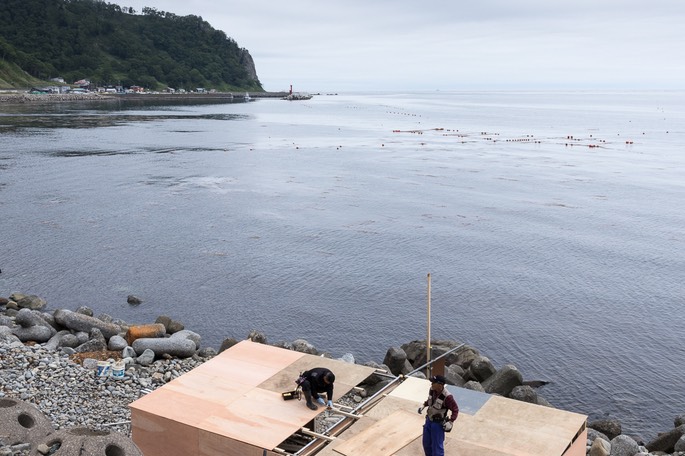
At this more northern end of the Shiretoko Peninsula was a smaller harbour and plenty of very large and noisy ravens competing with large and noisy seagulls.

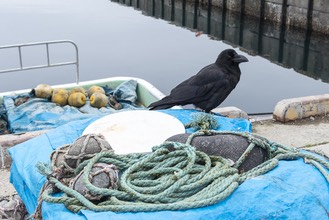
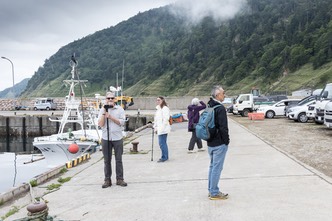
The coastline had many distinguishing features, including what I referred to as a solid cow pat! It was near here that we saw a group of young men in overalls being ‘escorted’ to the coast with rubbish-collecting tongs in hand. No wonder Japan seems so clean!


We were back in Rausu in time for lunch before my fellow travellers were heading out on a boat cruise up alongside the peninsula. Rausu did have restaurants, but most seemed to be for dinner only. So, we popped into a small cafe which looked remarkably like someone’s front room! The elderly proprietress spoke about as much English as we did Japanese, but she seemed happy to have customers. After some confusion as to exactly how many portions of toast we wanted, she brought out her homemade marmalade which we totally devoured. This was one of those uniquely Japanese moments which makes travelling in Japan such a pleasure. No one knows exactly what’s going on, but everyone keeps smiling and says thank you many times, and that small interaction with the locals is such a pleasure.
Click here to go to Day 2 - Rausu
Click here to return to the Hokkaido main page.
Click here to return to Travels.